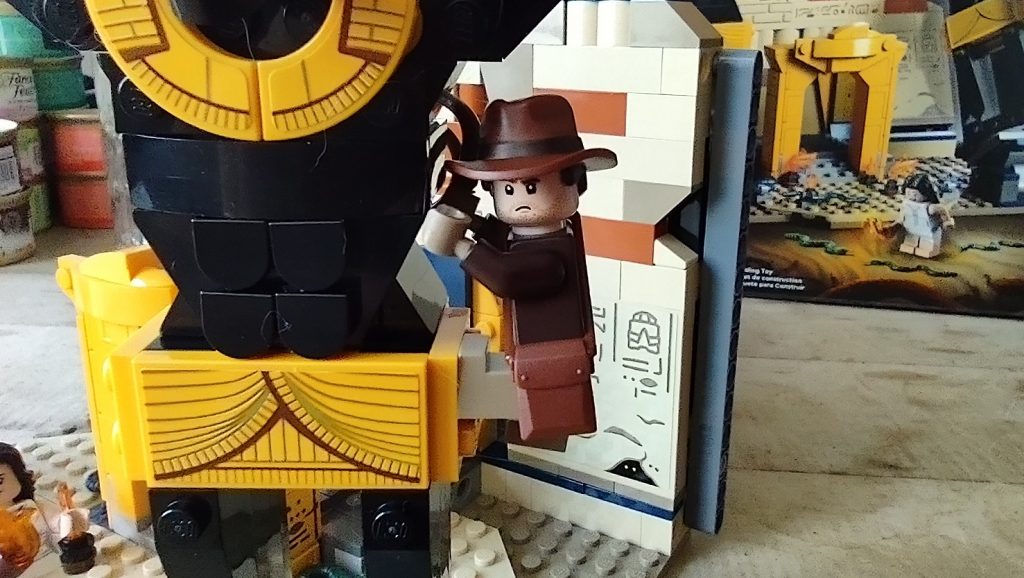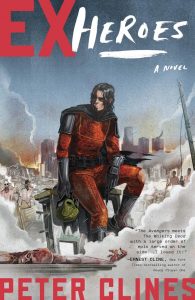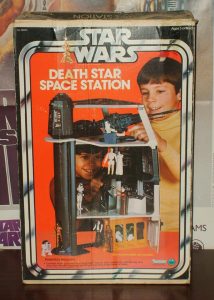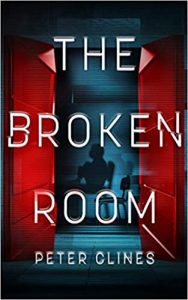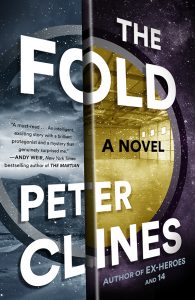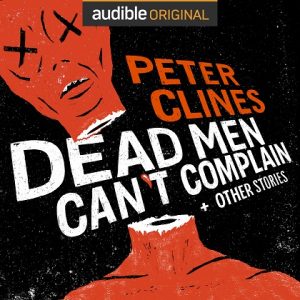So, I’d like you to cast your mind back a few weeks to when I told you what we’d talk about next time. Which, by odd coincidence, was casting you mind back a few weeks to thhink about what I told you then…
Yeah, I’m running late, but it turns out it works thematically so… yay.
I thought it might be cool to talk about flashbacks for a minute or six. I’ve mentioned them half a dozen times over the past few years—usually relating to story structure, but I haven’t really talked about how to do them in a couple years. Maybe ten years? Wow I remember it as if it were only yesterday…

Anyway, for our purposes, when I’m saying flashback it can cover a few things. It can be an element within the story like a recalled memory, or something more physical like a letter or journal entry. Sometimes, like in my Ex-Heroes series, it’s part of the way the narrative has been structured. All I need to remember is that whatever form my flashback takes, it just needs to follow a few rules-of-thumb if it’s going to work.
<insert usual disclaimer of yes it’s always possible to find a way, exceptions do not disprove the rule, etc, etc>
Now, first rule of thumb is I can use a flashback anywhere in the story, but this switch in the narrative structure can’t affect the dramatic structure. If I’m going to drop linear point E between points R and S in my narrative, it still has to keep the story moving forward. It needs to keep building tension and/or pushing the character arc. If it doesn’t do either of those things… what was the point to this flashback?
A lot of writers use flashbacks as infodumps. The flashbacks are seen as a chance to show how Wakko met Phoebe, how Phoebe became a ninja, why Wakko hates snakes, and so on. The mistaken belief is that if I do this in a flashback, I’m not affecting the pacing or tension of the present storyline because these events aren’t happening now—they’re happening in the past.
When I do this, I’m confusing linear structure with narrative structure. A flashback has to keep moving the story forward. It doesn’t matter where the events fall in the linear structure of the story, but wherever I’m using them they have to fit into the narrative structure I’ve established.
I mentioned the Ex-Heroes books and, in all fairness, I did this with the first one. I dropped a flashback dead in the middle of the big climactic end battle and brought things to a grinding halt. Full-tilt, non-stop action to no-tilt, standing-in-place dialogue chapter in one page. Which meant (once it was pointed out to me) weighing if I needed this flashback or not, and if I did… where should it be instead? Where would it actually fit?
Now, the second rule of thumb is just the reverse of the first one. It’s when I confuse the narrative structure with the linear one. This is similar to a problem I’ve mentioned once or thrice before, understanding when something happens for the first time in my story. When I do this with flashbacks, instead of messing up the tension or the pacing. I mess up the internal logic of the story. It also happens sometimes with poorly set-up twists or reveals.
F’r example let’s say I’m telling a werewolf story, and on page 100 my protagonist has no idea who the werewolf is. Then, on page 200, I flash back two weeks to something that happened “off camera” earlier. Here I reveal that she learned the identity of the werewolf because of a clue she spotted in the old family Bible.
And yeah, in a quick, don’t-think-about-it-too-much way, this makes sense. On page 100 she doesn’t know, but by page 200 she does. Except… it’s new information for the reader on page 200, yeah, it’s not new to my heroine. She’s known all along, right? Pg 200 happened before page 100 once we look at this in linear order. Which makes her actions, motivations, and even some of her dialogue for the last hundred pages… probably don’t make a lot of sense.
The simplest way to test this is to take my narrative apart and put it back together in linear order. When I read it now… are people doing or saying things that don’t make sense? Does that twist land really flat? Are they acting strange for no reason? If my flashback doesn’t work once it’s in linear order… something probably needs work.
Now there’s one last thing I need to watch for, and that’s my third rule of thumb. This one had a bit of venn diagram overlap with the last two, but I think it’s pretty its own thing. It’s also a common problem in prequel stories which, if you think about it, are just big flashbacks.
By its nature a flashback is giving my readers a glimpse into the past. This also means, though, that they’ve effectively seen the future. They know, to a large extent, how things are going to play out. So trying to create a lot of drama and tension within my flashback can end up feeling… well, a little silly. Did forty-year-old Phoebe get eaten by a shark when she was fifteen?!? Hopefully we’ll find out in her next flashback…
I think some writers feel like they’re adding to the tension or suspense when they do this with flashbacks. Thing is… there really isn’t any tension in this cliffhanger, is there? Because y’see, Timmy, the moment the reader pauses, even for an instant (like, say, at this chapter break), they’ll remember forty-year-old Phoebe’s back here in the main narrative of the story and pretty solidly un-shark-eaten. No missing limbs. No major scars. Not even any nibbles that we’ve seen or heard her mention. So the attempt to build tension here just feels, well, artificial. It’s me trying to create tension in a situation where there clearly isn’t any.
So, to recap, my three three rules-of thumb for flashbacks.
1) My flashback needs to work within the narrative structure.
2) My flashback needs to work within the linear structure.
3) My flashback can’t create tension that’s undermined by the present.

Also, as I’ve been doing for years, I’m going to suggest some homework for you. Go watch the first Resident Evil movie. Yeah, the one with Milla Jovovich. Seriously. It’s action-horror fun but it’s also got some of the best flashbacks I’ve ever seen. Each one nudges either the plot or Alice’s personal story forward a little bit more, they all fit together flawlessly (as the movie even shows you), and rather than get undermined by the “current” narrative these flashbacks actually rack up the tension in it. Honestly, it’s well worth a watch and you can probably find it for free on Netflix or Tubi or something.
You only have to watch the first one. I mean if you want to watch them all, I happen to think they’re kind of fun. No, they don’t follow the games but it’s a pretty solid sci-fi/ horror series in its own right, especially when you consider almost every movie is clearly done as “okay, this is the last one…”
Anyway, next time, I’m going to revisit my simple four step plan for success.
Until then, go write.


